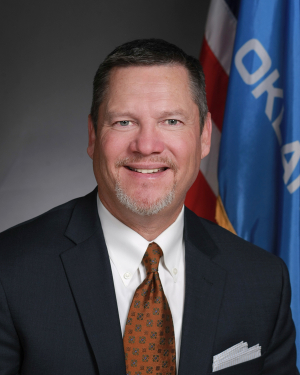State budget negotiations between the Senate and House are beginning in earnest now that we’ve passed the halfway point in this legislative session. My Senate colleagues and I spent much of the first half of the session coalescing around a proposed state budget for the upcoming year. Now, we’re seeking input from the House so we can come to a broad consensus on our state budget for next year.
Leaders of the Senate and House Appropriations Committees typically negotiate the particulars of a state budget. As the Senate Appropriations Committee’s vice chairman, I typically spend long hours going over budget numbers with Chairman Roger Thompson and our House counterparts. We recently met with House budget leaders for the first time this session, and initial talks went well. They were inquisitive about our initial proposal, which we hope will be the start of an open dialogue that carries us through the end of the session. Lawmakers are constitutionally required to pass a balanced state budget each year.
There appears to be widespread support in the Legislature for my idea to create a new state fund devoted to helping colleges, universities, state parks, and state agencies tackle deferred building and facilities maintenance. Several lawmakers filed bills this year to address the state’s backlog of aging infrastructure needs. From institutions of higher education and state parks to government-owned buildings across Oklahoma, the state has billions of dollars in maintenance projects that have been put off for years. The projects include replacing old heating and air conditioning systems, updating electrical wiring, renovating or replacing old buildings, and ensuring state parks have accessible drinking water.
I introduced legislation this year to create a self-sustaining fund that allows the state to repair its aging buildings and facilities. I proposed the state initially deposit $500 million in one-time funds into the new account. This wouldn’t be a typical savings account, though. Investment managers at the state treasurer’s office would be tasked with investing those dollars so the fund continues to grow. Senate Bill 1399 would also create a new commission that would develop several five-year plans to direct how the appropriations are spent. The funds will be divided among public institutions of higher education, the Oklahoma Tourism and Recreation Department, and various state-owned buildings and properties. SB 1399 also stipulates that $50 million be deposited into the Long-Range Capital Planning Legacy Fund each year beginning in fiscal year 2029.
Now that bills have crossed the Capitol rotunda, I’ve signed on as a coauthor to many House bills. Among those is House Bill 3683, which would create the Defense Workforce Grant program. This program would provide grant funds to companies in rural Oklahoma that are working with the Department of Defense or branches of the military. Essentially, these grants would allow companies that are already working with our armed forces to expand their work. This will help these businesses hire more employees and make Oklahoma a hub for the defense industry. This bill gave me a chance to present legislation in the Senate Veterans Committee for the first time, and I’m proud to say HB 3683 passed unanimously.
As always, it’s an honor and a privilege to serve the people of Senate District 20.
The Oklahoma Legislature provides a live stream of legislative activity. Senate proceedings can be viewed online at oksenate.gov and House proceedings can be viewed at okhouse.gov.
Please feel free to contact my Capitol office with any questions or concerns you may have about legislation or other issues impacting our state at 405.521.5628 or at Chuck.Hall@oksenate.gov.




Be the first to comment on "Senator Hall: State budget negotiations continue"